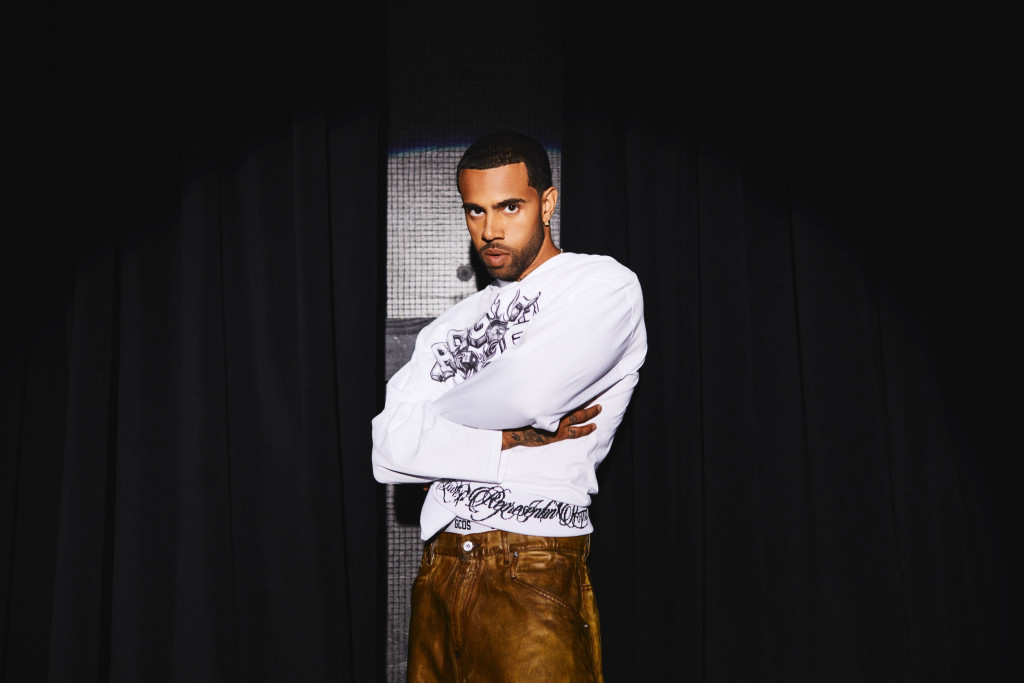It’s 11 a.m. on set in Los Angeles. Vic Mensa has just wrapped a wardrobe change for The Quintessential Gentleman’s cover shoot when Clipse’s new album, Let God Sort Em Out, starts playing through the speakers. The bass thumps low, Pusha T’s verse drifts through the studio, and Mensa pauses. “I love how vulnerable rappers get when they’re older,” he says, nodding his head. “It’s great to see.”
It’s a small moment, but a telling one.
Today, the 32-year-old isn’t playing a part or performing for the camera. He’s in a state of reflection. The man behind the mic, behind the politics, and now behind the screen in Lena Waithe’s The Chi is peeling back layers, not just for the public, but for himself.
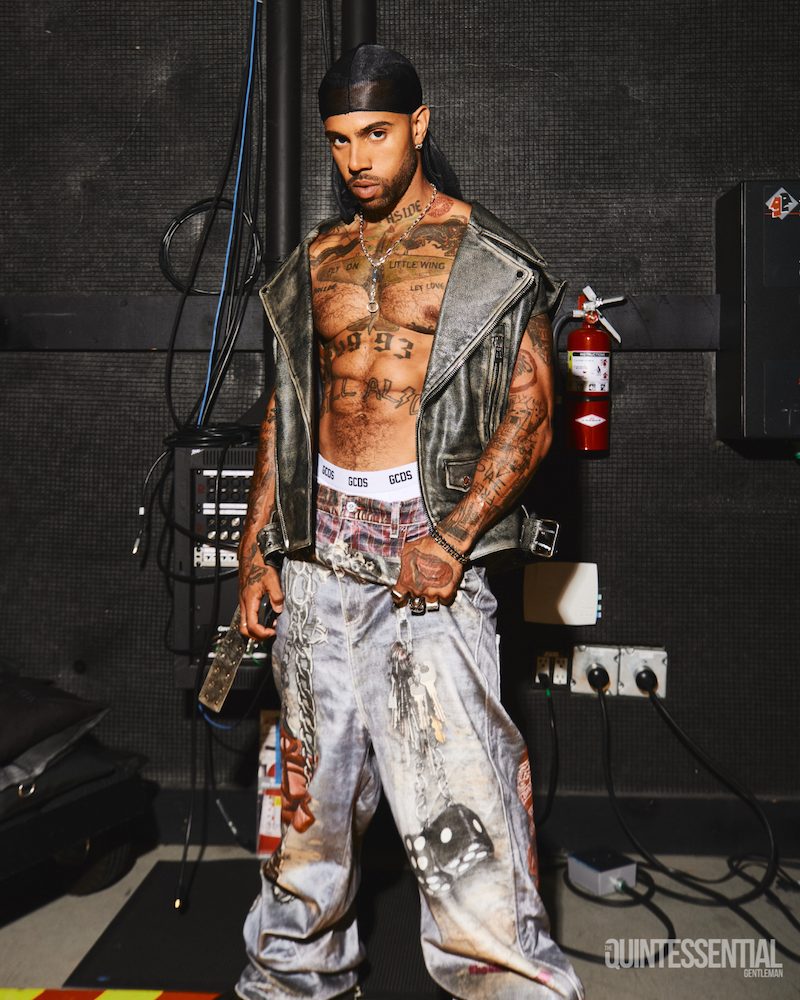
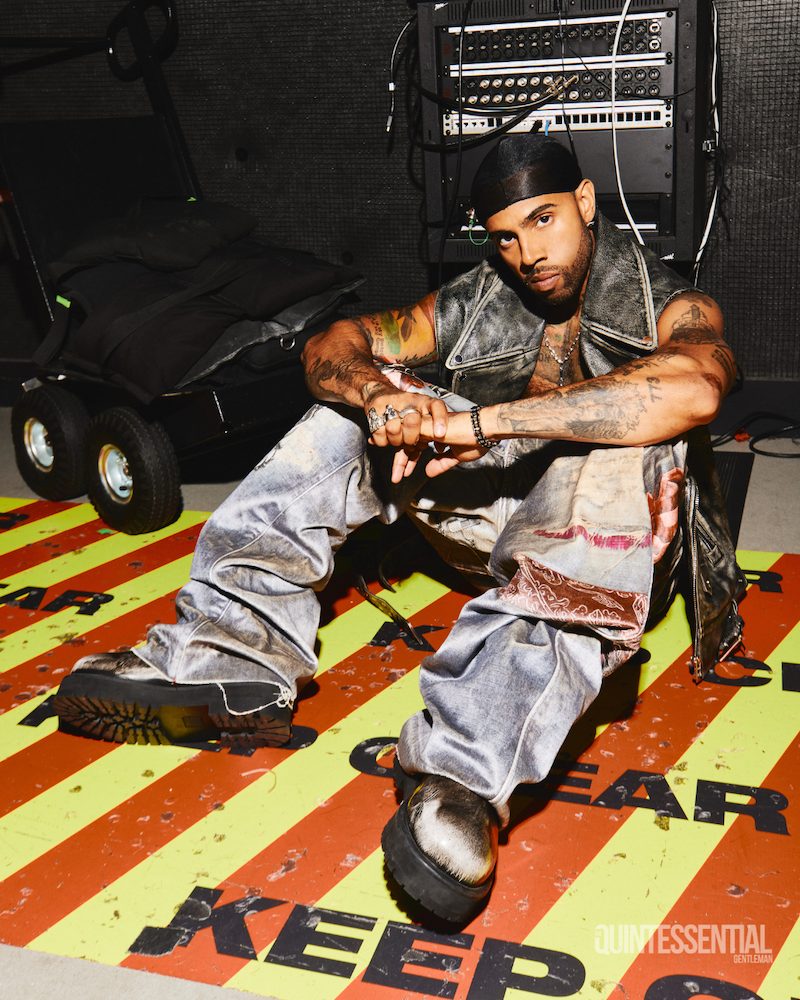
DHRUV KAPOOR top | PDF bottom |PDF shoes | Orttu Jewelry | GCDS underwear
“I’ve always been a student,” he says. “I’ve always sought self-improvement… But what prompted my current process of growth? It’s rock bottom… Rock bottom is a beautiful place to build something. And what better to build than yourself?”
If you think this sounds like a different Vic Mensa than the one we met years ago, you’re right. He’s been many things over the course of his career: a lyrical prodigy from Chicago, a social activist, a fashion chameleon, a rebel with the Rage to match, and, more recently, an actor channeling redemption and reinvention.
But these days, the most interesting version of Vic Mensa might be the one not chasing anything at all, except peace. There’s a calm around him now. Not performative, not manufactured. Just real. Earned. Maybe that’s what makes this version of him feel so magnetic. He’s not trying to impress anyone. He’s trying to understand himself.
Born to a Ghanaian father and a white American mother, Mensa grew up straddling the cultural lines of race, heritage, and expectation. “My family tree is the oppressed and the oppressor,” he says. “Those who murdered the natives and those who came on a ship like the Nebuchadnezzar.”
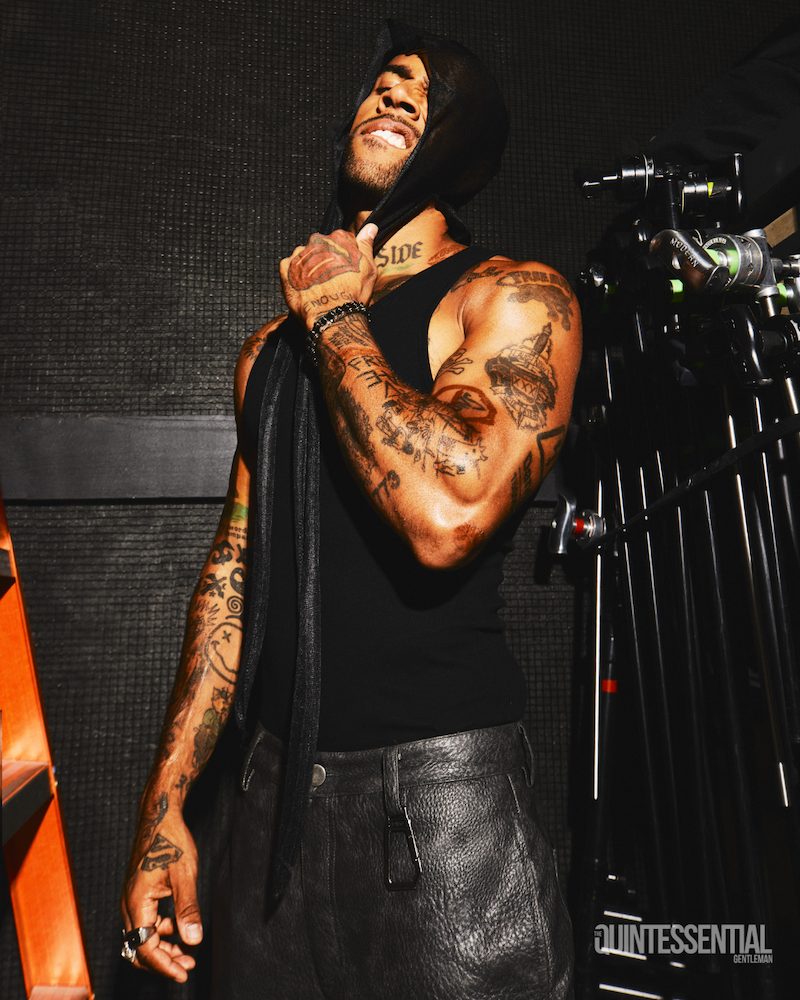
Alfani top | GCDS underwear | BoohooMan | Sterling Forever Jewelry
There was a time when that duality left him conflicted. “There were a lot of times when I felt really frustrated about it… I felt like, ‘Damn man, can I just be Black or be white?’” he shares. But as he’s grown older, that fracture has transformed into fluency. “I really know how to relate to people of different races because I am a person of different races.”
Still, Chicago is the constant. The home base. The origin story.
Raised on the South Side, Mensa has long used his platform to amplify the stories of his city. That commitment found a new outlet through his role as Jamal in Showtime’s The Chi. “Jamal’s story is one of redemption and reinvention, which has so many parallels to my own story,” he says.
When preparing for his role in reentering The Chi universe in Season 6, Mensa pulled from real-life experiences. “I spent a lot of time thinking about Jamal’s time incarcerated and him not knowing if he’ll ever be free again,” he shared. “When I’m doing that character development, I think about how I felt being in a cell. Praying for the same things, like praying for family and praying for love.”
Both the character and Mensa share a newfound connection to religion: Jamal is a born-again Christian, while Mensa is a practicing Muslim.
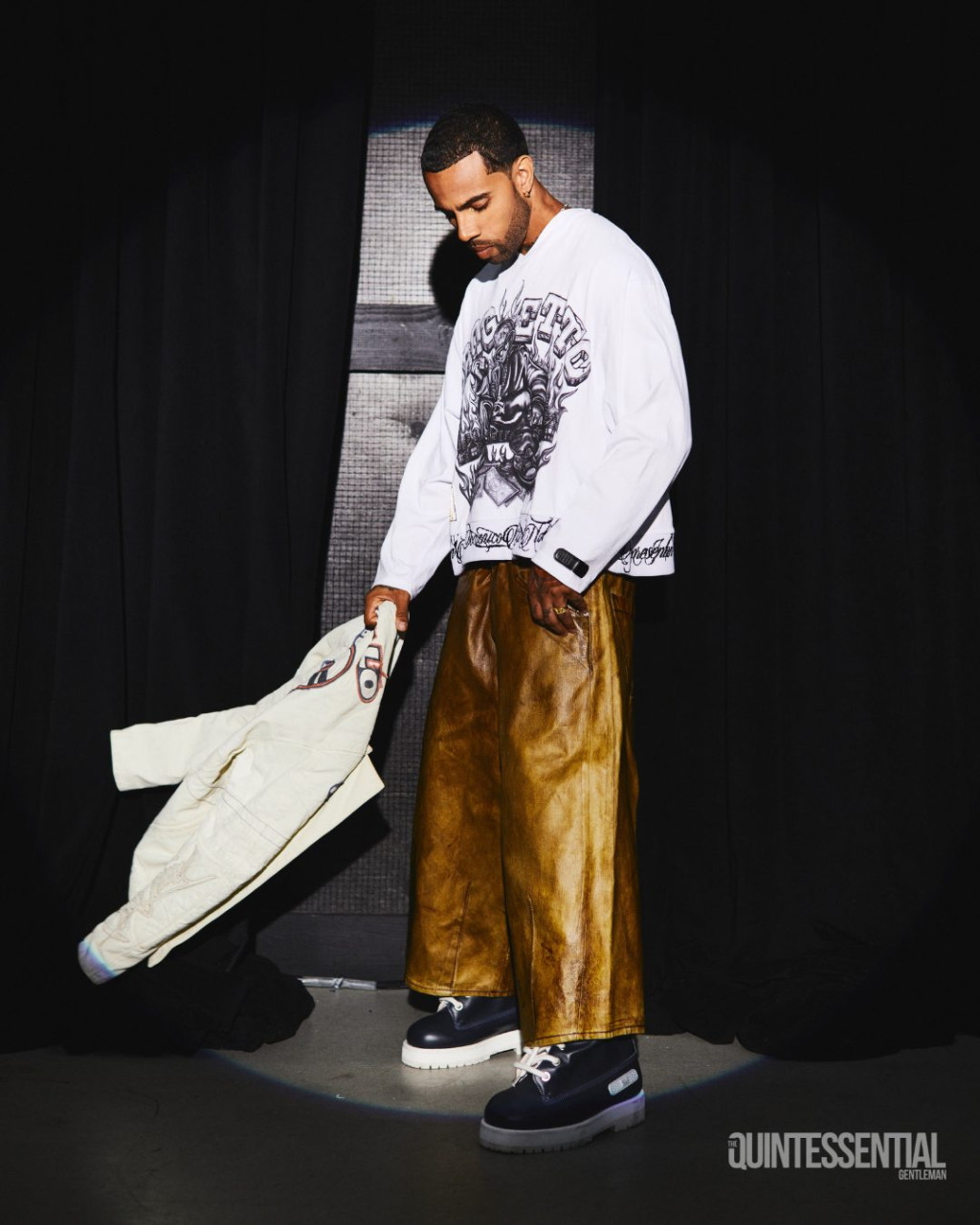
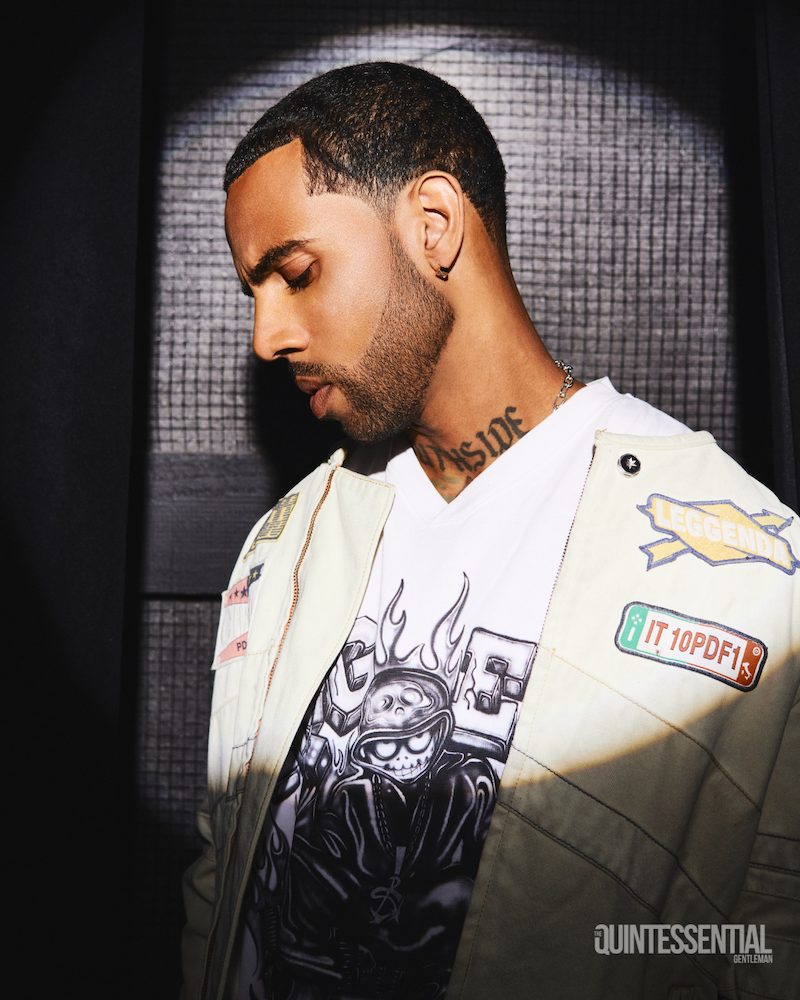
PDF top | PDF bottom | PDF shoes | Sterling Forever Jewelry
“He’s [Jamal] on his born-again Christian shit, which ain’t worlds away from what I’m on. I’m a Muslim,” Mensa shares. “In a lot of ways, I feel like being a Muslim and being specifically one of those born-again type of Christians has some parallels because being a Muslim is a pretty serious dedication to make.”
But as he steps into character, the lines between art and life blur. He laughs, calling Jamal “clunky” and “heavy-handed,” admitting that he himself is much more of a jokester. “He’s so goddamn born again,” he grins. “He’s like, ‘I won’t even have sex,’…But I’ve been there.”
Mensa opened up about his period of celibacy, describing it as a transformative time that allowed him to reclaim focus and discipline in his life. “I just wanted to show myself that I could choose my behavior, that I could be in control of my body,” he shared.
For Mensa, the choice to abstain wasn’t just about sex; it was part of a larger journey of self-mastery. Having already quit drinking, smoking, and using drugs, he didn’t want sex to be the one area where he lacked control, especially given his history with sex addiction.
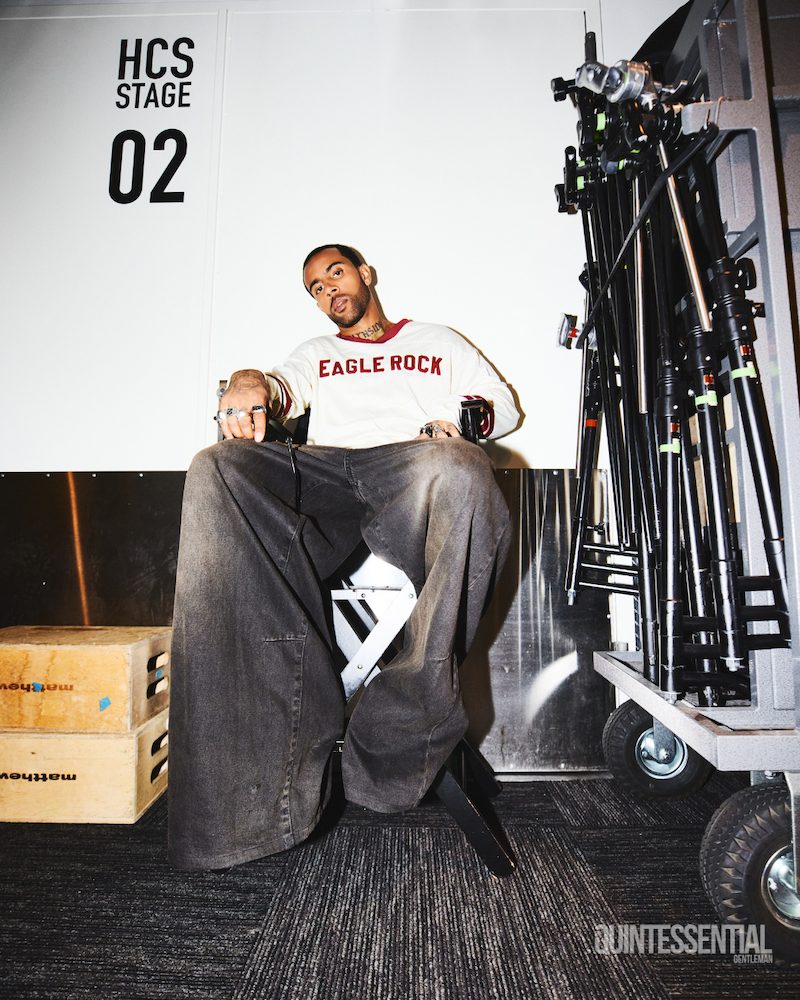
Strike Oil | Boohoo Bottom | Kim Jones x Converse shoes
“Addictions all carry the same DNA,” he explained. “You’re always trying to fill a hole emotionally with something external.” For him, celibacy was an act of power, proving that he could break free from compulsions and be guided by intention rather than impulse.
Mental health has become a core focus in his life, and a daily battle. “Depression, to which I have a lifelong propensity, is the absence of gratitude,” he shares. “Times when I’m very depressed is because I have no gratitude.”
That realization has shaped new rituals like prioritizing his mental health through meditation. “Also, constant vigilance of my thoughts and exercise and restraint, not allowing myself to get into bickering back and forth… just working on having grace for myself and others,” Mensa shares.
Part of that grace means choosing kindness, even in difficult moments. When faced with someone who upsets him, he leans into patience, making a conscious effort to respond with compassion and maintain grace, even when it isn’t easy.
It’s a shift from the version of Vic Mensa the industry once knew, a shift he acknowledges. “I had a large period of my life where I amassed a reputation of being an asshole,” he says. “But right now, I feel like the more powerful thing for me to do is to exert control over myself.”
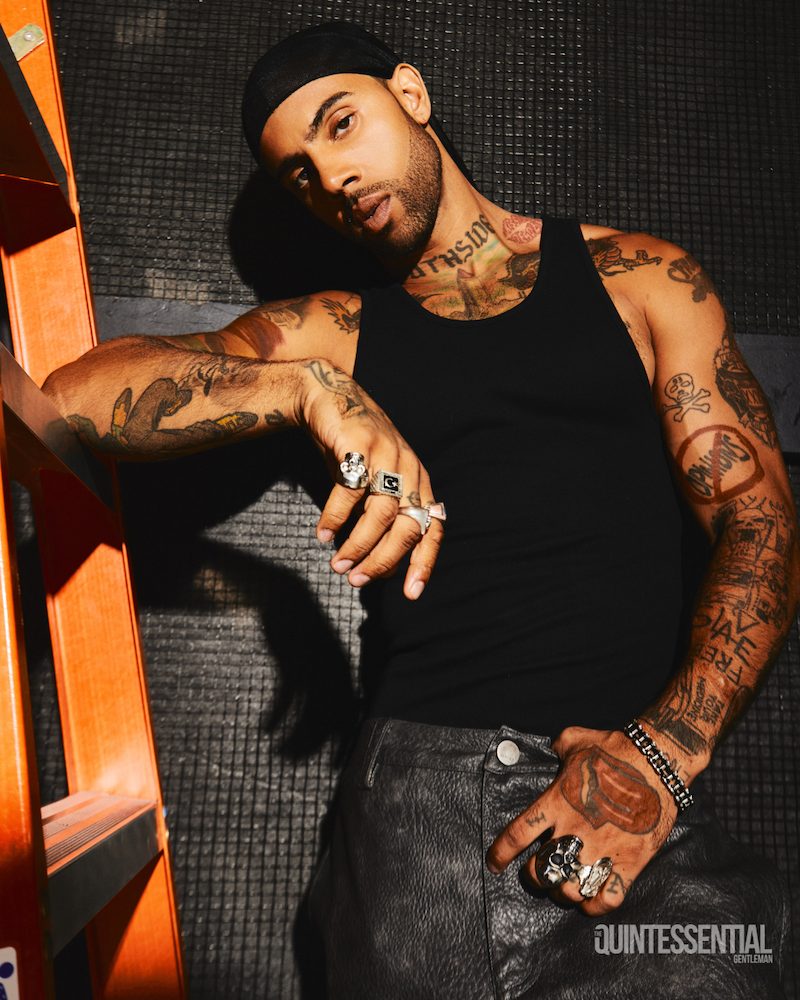
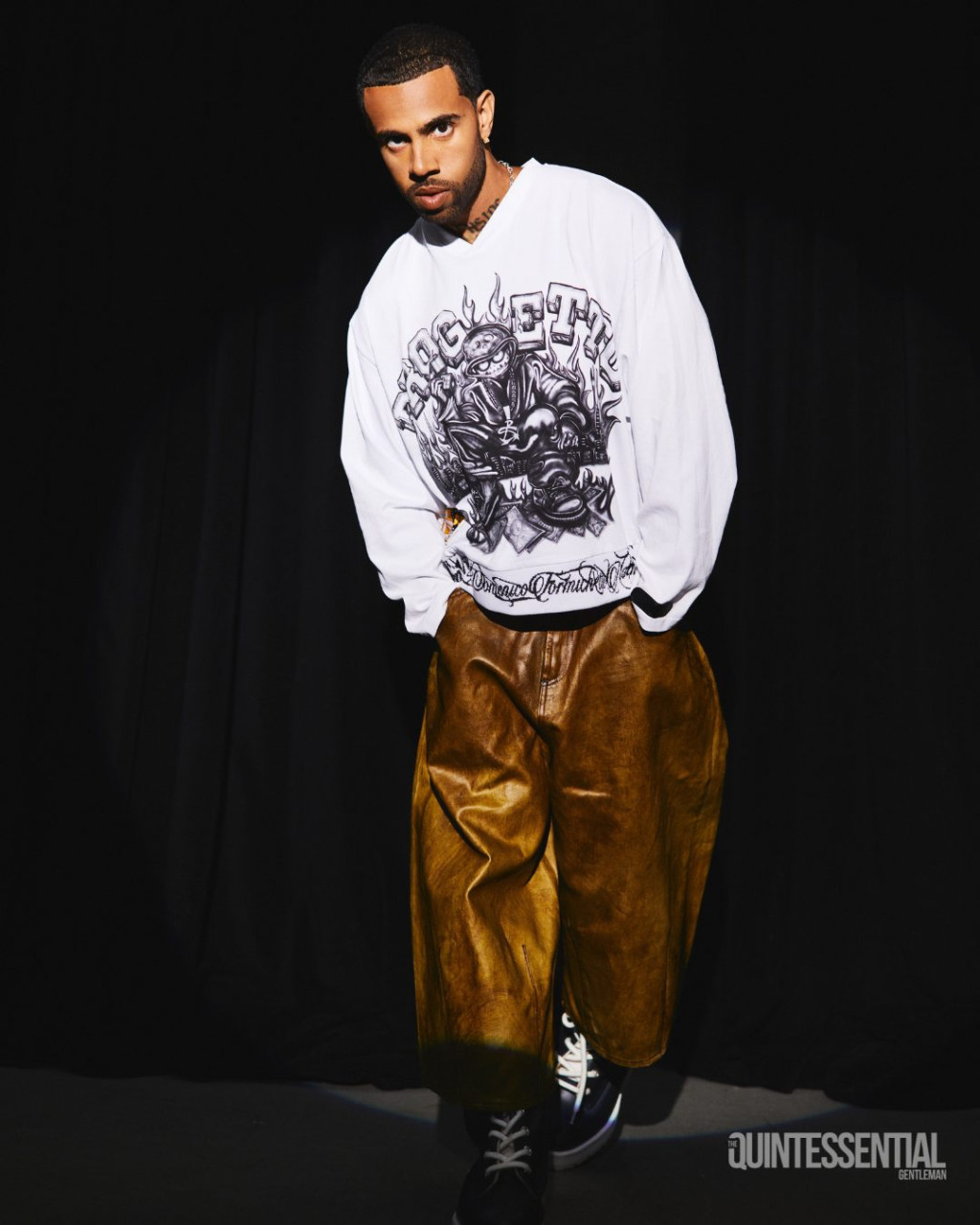
Today, Mensa finds anchoring in Islam. Though not raised in the faith, his commitment is serious. “I’m not raised Muslim, but being an active Muslim, like on your deen. You can’t drink; you ain’t supposed to be doing certain things in a romantic sense. So you just really got to be on point.”
That clarity extends to his view on success and critiques of “the culture.” A few months ago, he made headlines when he called “Black excellence” a scam, criticizing how it’s often used as a marketing badge. Mensa challenges its implications, sharing, “My critique was not so much with terminology. I was more so addressing the hyper obsession with Black capitalism overall… It’s money over everything. I don’t believe in that.”
He adds, “If I could make a bag right now investing in privatized prisons, I can’t do it… I don’t want to do certain businesses because they’re of a detrimental value to the masses.”
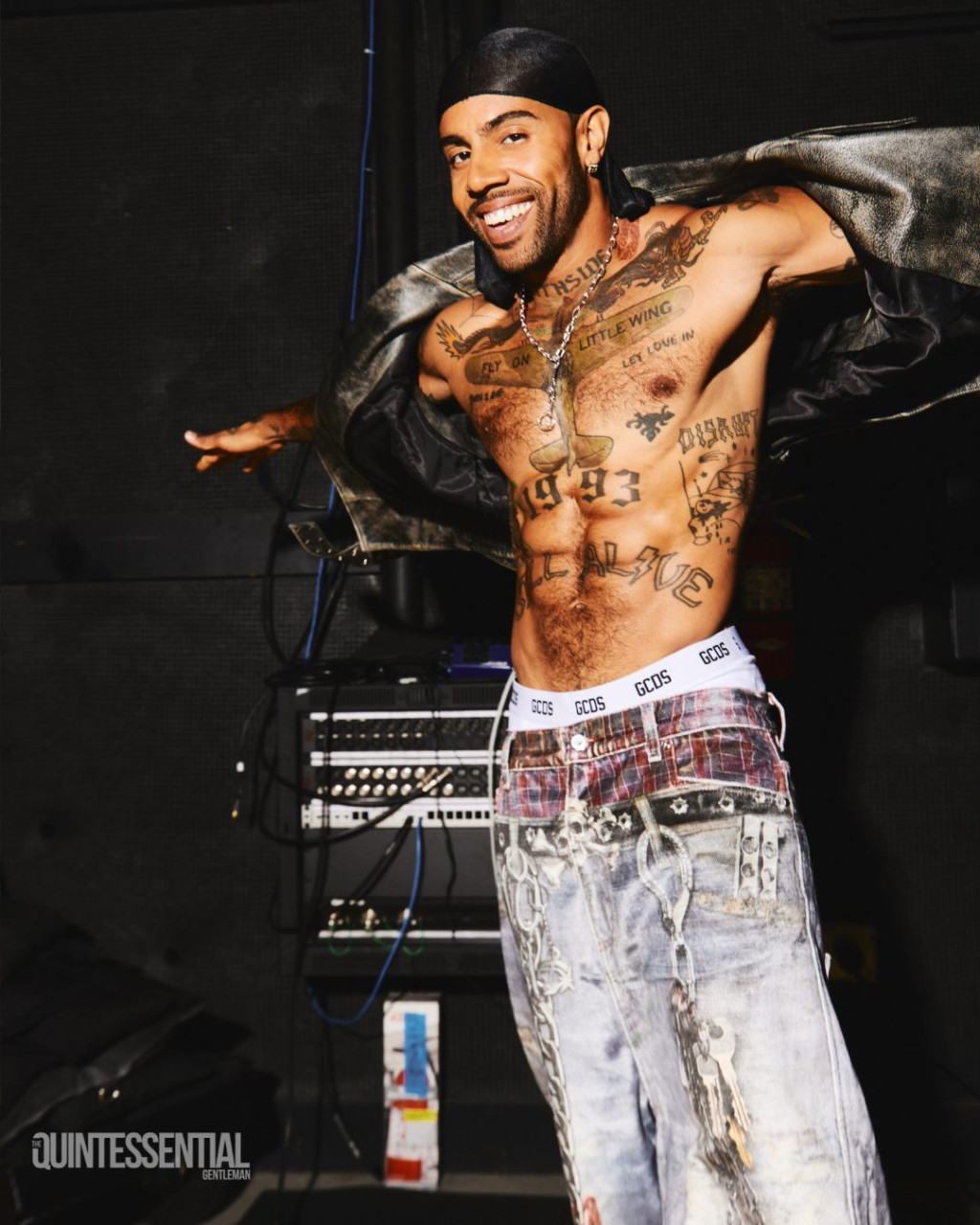
So what does he believe Black men need?
“Therapy,” he says without hesitation. “That’s how I feel. Everybody does.”
There’s no facade left. No attempt to hide the past or filter the future. Vic Mensa is an artist who’s lived many lives, some of them under harsh lights, others behind closed doors. But now, perhaps more than ever, he knows exactly who he is.
Check out the full interview below. Make sure to tune into The Chi on Fridays on Paramount+.
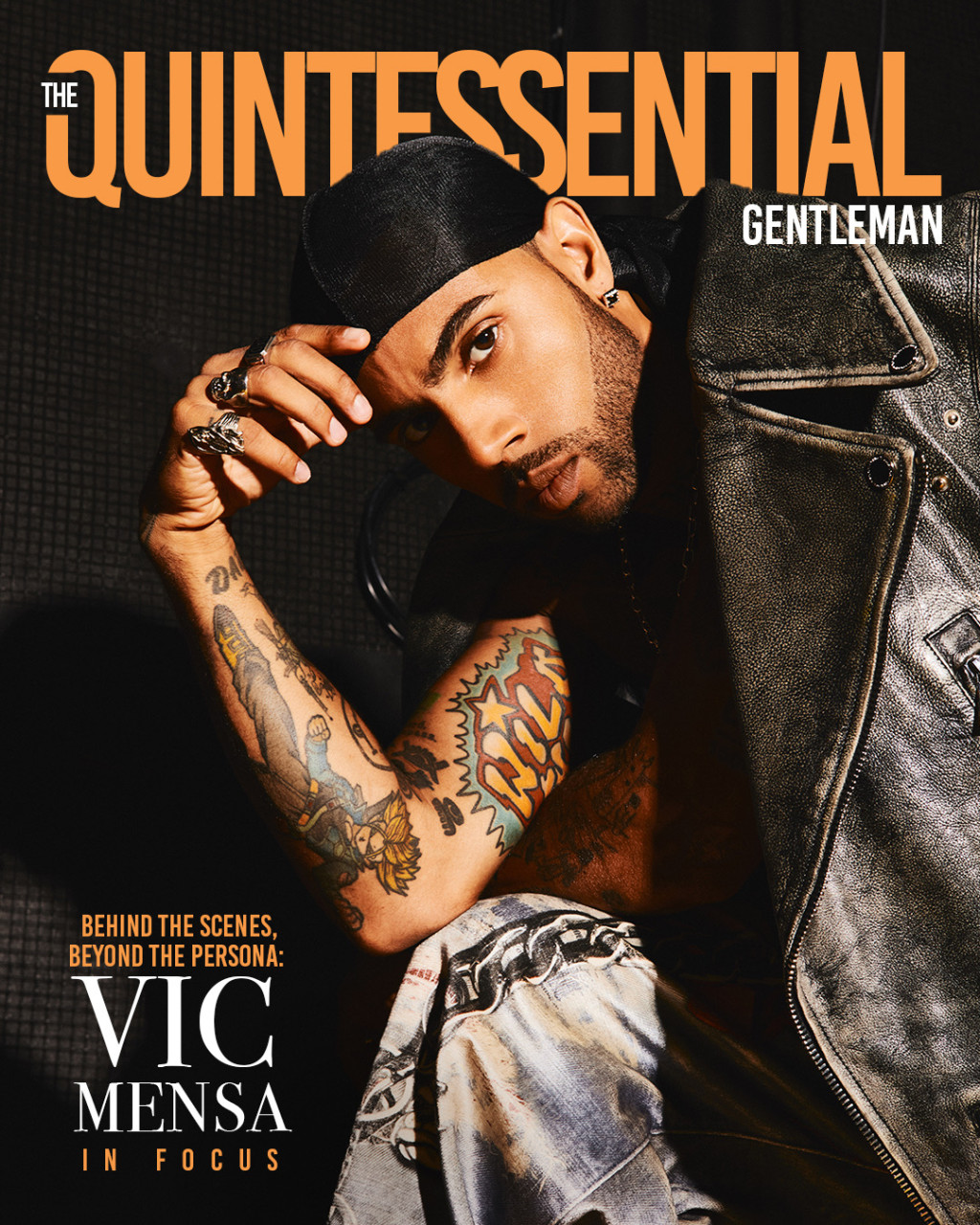
Editor-in-Chief/Art Director: Eric Keith
Photographer: Antar H
Stylist: Ron Jeffries
Styling Assistant: Jarrett Meilleur
Groomer: Andrea Samuels
Videographer: Leef Parks
Graphic Designer: Tyline Burgess
Publicist: Chanel Monet


